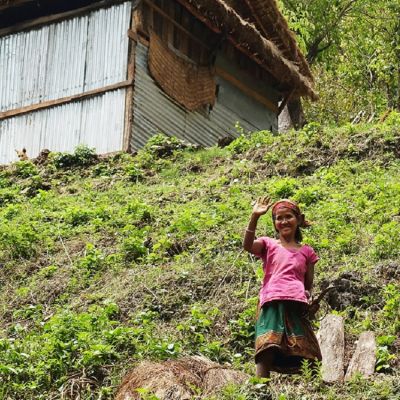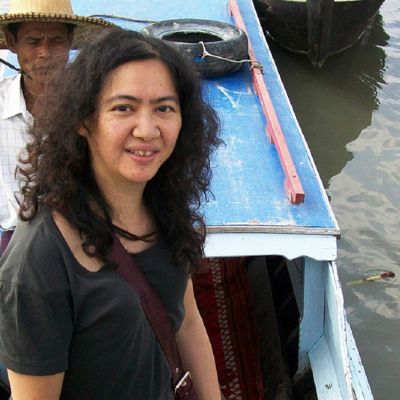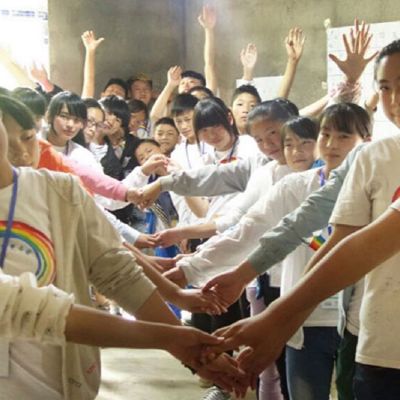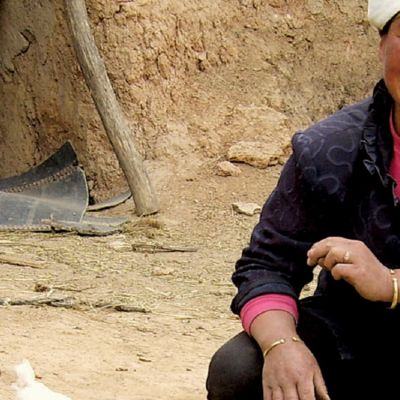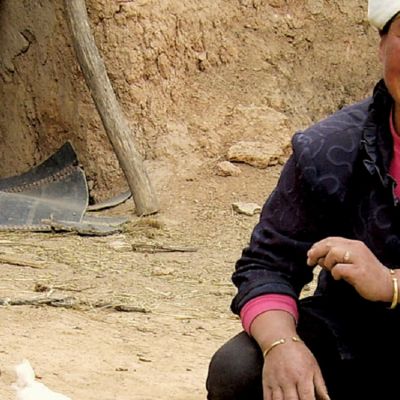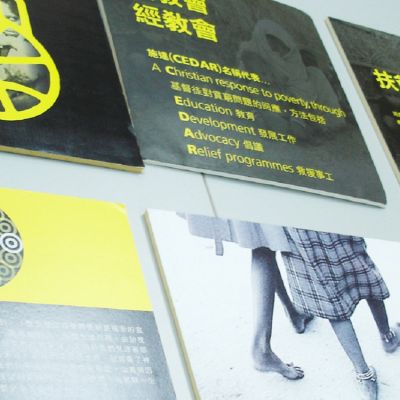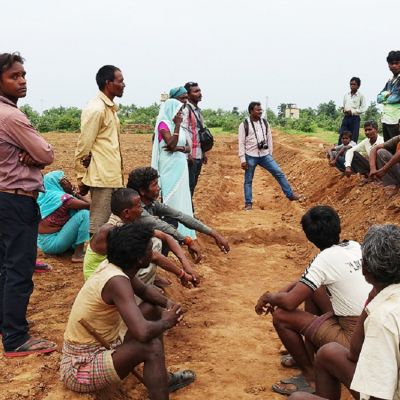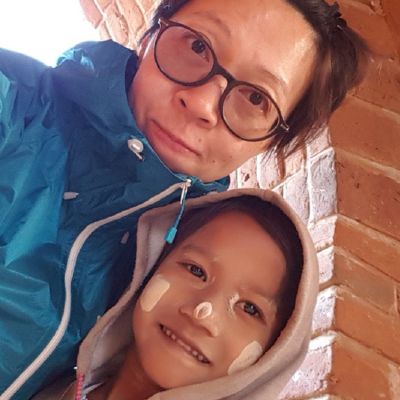Interviewee: Rebecca Lee (Senior Programme Officer)
Interviewed and edited by: Jojo Poon
Devotees in the development industry often started out with a calling derived from a unique personal experience. For Rebecca, our Senior Programme Officer, that special experience took place during her university years. She was pursuing a degree in International Politics, and one of the subjects was International Relations. It was her first time acknowledging the wide disparity between the world’s rich and poor, “I didn’t think God intended the world to work this way: while some people were starving to death, others enjoyed excessive abundance. This was clearly wrong. I wanted to do something to make the world a better place,” Rebecca says. Since then, to make a difference for God (MAD for God) has become her motivation in serving the poor.
The journey to serve in Shaanxi followed by public education work in Hong Kong, to the eventual devotion to supporting overseas development projects, had taught Rebecca the discrepancies between ideals and reality, and the importance of local perspective within the development work, “We often came across results that are different from our expectations. I was visiting a village in Tanzania where we had implemented a development programme for over a decade. It looked the same on the outside comparing to neighbouring villages, except there were several grocery stores within the village.” To Rebecca’s surprise, the humble grocery stores made of clay were actually important achievements by the villagers, after forming self-help groups, setting up small loans, and learning to run businesses. “Normally, we don’t credit something other than the erection of concrete buildings as development, but to the villagers, an upgrade to metal sheet houses from straw ones was a huge step forward… We need to look at development from the perspective of the locals and recognise their struggles and needs.”
It seems like we are the one who brings changes to the poor on the surface, but those who have been among the poor and experienced poverty and local development would gladly share with you their broadened horizons. “I had a renewed perspective towards my neighbours, the poor around us, and the people and events surrounding urban renewal projects in Hong Kong,” says Rebecca, “My experience in development work led me to appreciate the uniqueness of Hong Kong and how blessed we are. We have a government that is doing a great deal of planning… When I went abroad to project sites, I realised there are only a few fortunate people.” She remembered her first trip to Africa was a trip to Kenya, “It was so deserted that people could only find muddy water after digging a 2-storey deep well. It made clichés like ‘Don’t waste your food’ and ‘Cherish what you have’ that much more palpable.”
Rebecca says that the responsibility to help the poor is not exclusive to only the development workers. Each of us could practically care for the poor in our everyday lives, “Hong Kong’s economy is largely driven by consumers and we as consumers can make use of our influence, for example, we could boycott companies that were engaged in sweatshop labour or child labour, or companies that adopt harmful farming practices to the environment. Consumers possess great power to impact how companies run their businesses.” Though there is a price to pay, “If we want the labourers to be paid fairly, we may need to pay more for the final product. We could also choose to simplify our lifestyle and consume less. These are all tangible choices we could make,” says Rebecca.
MAD for God. The question is not how big of a difference could we make for God, but if we are willing to make a difference in our everyday life for God.
Content of this issue
Written and edited by: Jady Sit, Jojo Poon At noon on 25 April 2015, Nepal was hit by the strongest earthquake in 80 years. Countless families lost their loved ones, homes, and properties. Approximately one third of Nepal’s population, 8 million, was affected by the quake. In the midst of ruthless disaster, people responded with love. Shortly after the earthquake, the world quickly pooled their resources to help. Yet, when global news coverage died down and emergency relief phased out, this was when we began to walk with the affected communities, helping them to rebuild and recover their communities sustainably for the long run. In the last decade, CEDAR has been supporting partners’ community development work in mountainous…
Written by: Lisa Chai (Former CEDAR colleague, currently involved in community development work in Myanmar) We are in the midst of a global refugee crisis. From Syria to Iraq, DR Congo to Yemen, and today we are witnessing the world’s largest growing refugee influx across the border of Bangladesh after violence broke out at northern part of Myanmar in Rakhine State in late August last year. As of 12 November 2017, the UN estimated that over 610,000 people have fled to Myanmar and the number is still growing. How do we react to all the violence and suffering in the world when their impact comes so strong and destructive? In the book of Lamentation we read of the…
“Left-behind Children”, a term describing over 60 million children in China who stayed behind with their grandparents in rural areas while their parents are working in the cities. While not all left-behind children suffer from poverty as their parents work far away from home, they all suffer the lack of parental care and love, and bear emotional burdens due to this long-term void. CEDAR’s partner in Sichuan, Chengdu Fuyi Community Services Centre, began supporting youths in quake-affected communities through caring and training programmes after the 2008 earthquake in Wenchuan, Sichuan. Two more earthquakes happened in Ya’an, Sichuan and Zhaotong, Yunnan in 2013 and 2014 respectively, leading to the expansion of our partner’s service to the youths in those…
Written and edited by: Jojo Poon I enjoy hearing stories and sharing of different development workers very much. If we put their sharing together, then we would get a complete picture of God’s purposes for the poor and the world. For this issue’s “Taking Action”, we invited CEDAR’s staff from different eras to share about their learnings and experiences along the way to put together a blueprint for CEDAR. “We were in Gansu’s Hui village working on the project… When we conducted home visits, we would ask: ‘Is anyone home?’, and if there were only women in the house, they would answered: ‘No!’” shares Alice, who served in Gansu, China. “We spent half a year to build relationship…
Interviewee: Alice Kwan (Former CEDAR Staff) Interviewed and edited by: Jojo Poon How far would you go for the poor? Would you visit the Guangdong industrial district alone to investigate sweatshop labour, or venture to Northwest China alone and live among the Hui people, or supervise earthquake rescue efforts while carrying a baby in your tummy and worrying about your husband’s safety who is responding at the frontline, or devote your family as a fulltime volunteer for four years, only to wake more hearts to care for the poor? That was Alice Kwan’s story. Alice had served in CEDAR for 12 years, 4 of which were spent supporting the community development projects in rural communities in Gansu, China….
Interviewees: Bonnie Ho (Administrative Staff) & Cee Foong Fung (Former colleague of CEDAR) Interviewed and Edited by: Jojo Poon Bonnie and Cee Foong had been serving CEDAR for over 20 years. Although they worked in the supporting role at the office, but that did not make them less knowledgeable about development work than others working in the same field. Such was evident during one of our regular morning meetings, the host led us to think in the shoe of the poor and we were to think about what their expected results for their community were after a project commenced. At the end, they both gave the most sensible answers. Bonnie has always been managing our accounting and finance,…
Interviewee: Fountain Chik (Senior Programme Officer) Written and edited by: Jojo Poon “Previously, I have worked in Tung Chung, Sham Shui Po, and Yuen Long before.” Many of us know that Fountain is the “Bangladesh guy” or “Prince of Bangladesh” at our office, but little have heard of his story before CEDAR. He says he began in community work locally. From different times of his service, there has always been one unified goal – to look for God’s footprint wherever he goes. When he was working in Tung Chung, Fountain was assisting community members on job employment as a social worker. Due to its long distance from business districts and to save on transportation fees, low-income residents in…
Interviewee: Grace Lai (Head of Partnership Development) Interviewed and edited by: Jojo Poon People take part in poverty relief works with different reasons. For Grace, the seed to care for the poor was sowed and rooted in her heart since her childhood years. “Every time the TV showed a commercial from a development aid organisations, I would be deeply moved… After I became a Christian, I wanted to do something meaningful. The moment came when I was changing jobs, where I recollected those old thoughts in my heart. I wanted to enter the poor’s community and live with them. Therefore, I began to realise this childhood dream by joining the development field.” About 10 years ago, Grace went…
Interviewee: Rebecca Lee (Senior Programme Officer) Interviewed and edited by: Jojo Poon Devotees in the development industry often started out with a calling derived from a unique personal experience. For Rebecca, our Senior Programme Officer, that special experience took place during her university years. She was pursuing a degree in International Politics, and one of the subjects was International Relations. It was her first time acknowledging the wide disparity between the world’s rich and poor, “I didn’t think God intended the world to work this way: while some people were starving to death, others enjoyed excessive abundance. This was clearly wrong. I wanted to do something to make the world a better place,” Rebecca says. Since then, to…



